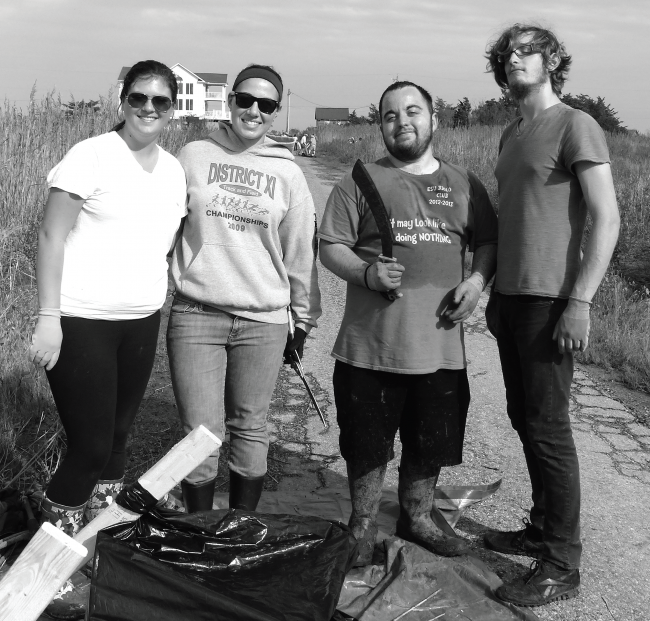

Photo Courtesy / Elise Trelegan
By Chris Powers
SC Staff Writer
The Chincoteague Bay Field Station, founded in 1968 under the name of the Marine Science Consortium, has purposed itself with educating and inspiring individuals of all ages on the estuarine and marine ecosystems present along the mid-Atlantic region.
Because of this purpose, two representatives from the field station spent several days last week touring a few PASSHE schools, advertising the field station and encouraging students to take classes there.
Ali Redman, the College Program Coordinator, said, “We toured Millersville on Monday, Kutztown on Tuesday, East Stroudsburg [on Wednesday], and we are doing West Chester on Thursday.”
Redman said, “It has been really nice to get an idea of where our students are coming from.”
Elise Trelegan, the Marketing and Development Coordinator at the Chincoteague Bay Field Station, said, “It is also nice to connect with professors interested in the station.”
The Chincoteague Bay Field Station offers a variety of classes to the PASSHE schools under its membership, many of which can be electives or requirements to graduate for biology or marine science students.
Redman said, “The courses we offer tend to be very much field-focused…it is very hands-on and academically rigorous.”
“The classes are basically a whole semester in two to three weeks,” Redman said.
According to Zachary Gotthardt, a student who has taken three classes at the Chincoteague Bay Field Station, “The biology departments emphasize fieldwork and at the field station, marine science majors get the appropriate fieldwork we otherwise wouldn’t have.”
Gotthardt continued, “I’ve fished for sharks, studied under new professors, and had classes on the beach. Most students don’t get to have this unique experience.”
In addition to its course offerings, the Chincoteague Bay Field Station offers opportunities for undergraduate students to get research experience.
According to Redman, “You can do independent research projects…and students from these research projects often end up publishing or presenting papers on their work.”
A special offer is made to undergraduates who pursue research at the Chincoteague Bay Field Station. Those students pursuing research may have some costs waived by up to 50 percent.
According to Redman, if students are unsure of whether they want to attend classes or work at the field station, they can take “a smaller taste of the consortium, when we have a work weekend called Alternative Spring Break.”
Alternative Spring Break is “great if you are taking two or more courses; you can come down and get familiar with the campus,” she continued.
For students who are not interested in coursework or research, but still wish to get involved in activities at the Chincoteague Bay Field Station over the summer, there are also employment and internship opportunities available.
The Chincoteague Bay Field Station offers a three week long mini-internship. Redman said, “It is an opportunity to build leadership skills, field skills, and you will get a hefty discount for the rest of the summer, if you do take classes.”
There are employment opportunities too. Redman said, “If you are interested in education or fieldwork, this is a great place to start your career.”
Concerning their tour of the PASSHE schools, Trelegan said, “We have gotten a lot of new student interest…and we are connecting to several new clubs and student organizations.”
The tour of the PASSHE schools has not just been about students. Trelegan said, “We are making new faculty connections and reconnecting with old professors who previously used our resources.”
The Chincoteague Bay Field Station has long been thought of as a facility for marine science majors. However, Trelegan said this is not true.
She said, “We are not just marine science. We do herpetology, ornithology, art, and — of course — education.”
Anyone interested in classes, internships, or employment at the Chincoteague Bay Field Station is encouraged to visit www.cbfieldstation.org, where additional information on the campus and its offerings can be found.
Email Chris at:
cpowers@live.esu.edu
